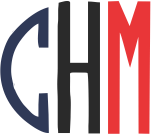top of page

FAQ

-
Do Family Advisors only work with players seeking a NCAA scholarship?We often receives questions about Junior Hockey, NCAA, CIS and CHL. A family advisor can play an important role for the development of hockey players as they guide the player and provide experienced advice when options are presented to them. It’s NOT only related to getting a scholarship, at Cain Hockey Management are more than just an advisor, we work closely to make them the best athlete possible!
-
Is having a Family Advisor Permitted?It’s important to remember that family advisors are perfectly permissible in the eyes of the NCAA – as long as advisors (and their advisees) follow some straightforward guidelines. The NCAA does not allow student/athletes to have agents, they can have family advisors.
-
How do I start the Process?Getting the most out of a family advisor relationship always begins with one you can trust and feel comfortable with. Cain Hockey Management encourages players and parents to meet with one of our Advisors to ensure all are on the same page and there is a trust that can be built between all parties. We feel that advisors should share the same values, goals and expectations for the player. Here at Cain Hockey Management we go beyond being just an advisor, we have the ability to be a coach, train the mind and body of our players. We build strong and powerful athletes. Preparing them mentally, to ensure they know what it takes to reach their goals.
-
What questions will CHM help answer before I decide which tryouts to attend?There are fees associated with tryouts, so players and parents should do their research before deciding where to try out. In addition to cost considerations, they should ask: How many veteran players are returning? How many open roster spots are available? Where do players typically go after graduating from the program? It’s also important to recognize the difference between a recruiting pitch in April and actual team dynamics at training camp in September. Asking the right questions before committing to a program can make a big difference.
-
When is the right time to play Junior hockey?This is primarily a family decision, as most Junior hockey players must move away from home to play. Players and families should carefully consider various factors before making this choice. Key questions to ask include: Is the player mature enough to handle the responsibilities of living away from home while managing hockey, social life, and academics? What are the player’s goals, and how realistic are they?
-
Do I have to play Junior hockey at an early age to advance my career?Not necessarily. Staying home and playing high school or Midget hockey can be beneficial if a player is not yet ready for the demands of Junior hockey. Every teenager develops at their own pace, both as a player and as a person. Excelling at the high school or Midget level for an additional year can provide valuable experience before transitioning to Junior hockey.
-
Where does education fit into the life of a Junior hockey player?Since Junior hockey serves as a gateway to college hockey, teams at all levels should prioritize education. That’s why Cain Hockey Management builds relationships with high schools, community colleges, and four-year institutions, ensuring that players have strong educational opportunities alongside their hockey careers.
-
What is the difference in costs for tiers of hockey?Teams at different levels may cover some expenses related to playing, such as equipment and housing. However, most junior hockey teams today operate on a pay-to-play model. Some teams may assist with housing and provide certain equipment. Pay-to-play typically means that players must cover costs for billeting, ice time, and coaching, which can vary based on the franchise’s location.
bottom of page
